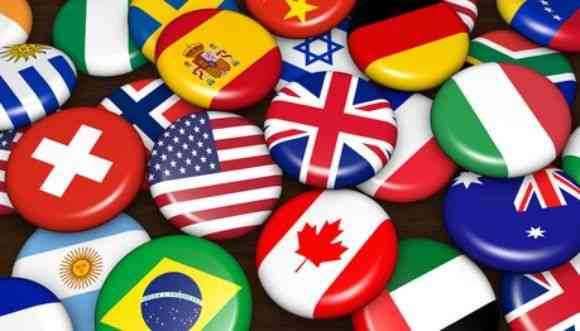The Important Career of a Professional Translator
For a long time, the need to impose new languages among colonial conquerors from unexplored territories of the dominator on the subjugate has always been present. Despite the large difference in status between the vanquished and the victors, the cultures were mixed.

If we talk about modern translation, it has a history that goes back specifically to the beginnings of written expression in all its aspects, mainly during the 20th century, this profession of translating languages was forced to adopt a much more formal framework in its execution in different ways of expressing one language to another language, as a result of globalization and other variables affecting its exponential progress.
Thus, the need arose to have highly trained translators and interpreters with extensive experience in this area and profession.
However, it is still widespread in several areas that "any bilingual person can be a translator". Not everyone can be a professional and highly trained translator to achieve translating certain languages that require a protocol and an experience process to achieve a task.

There are three factors that are main and that characterize the main training and work of translators who are professionals: - many years of study
- Years of practice, training and experience in a wide variety of fields of specialization in translations.
In many cases, the fundamental and alternative studies of a translator or interpreter are essential in resolving and addressing other issues such as: - Good translations and good flow in both languages can achieve a correct medical diagnosis, resolve a dispute or problem situation at the international level or transmit key messages for national security in a country.
An interpreter or translator having an expert or bilingual level of two or more languages that are spoken, the academic preparation of the translator or interpreter requires a minimum of five to ten years of study, which never really concludes or ends, because knowledge is continued to be learned and refined as final and progressive experience is added.
Generally, professionals in this area not only have a bachelor's degree, but continue to take other courses and many earn graduate degrees. Not only is the understanding of the source text or discourse of cardinal importance, but the excellent written or oral expression.
Translators and interpreters are specialized in many fields within this same area (many times, in more than one) that allow to ensure greater precision and correctness of the final product at the time of a translation.
Concentration equally allows translators to maintain optimal performance beyond their circumstances or adversities; cultural sensitivity, key to adapting different content to diverse audiences and treatment of different races or cultures; interpersonal skills, which play a very important role in the transmission of a clear and concise message; and research skills, which are responsible for allowing them to prepare on their own to emphasize new translation topics and methods.

Taking into account all the explained, today, we are exposed at a time when both intercultural and communication between the most diverse and general cultures are being fostered where the demand for translators is increasing depending on different countries.
Anyone is not fully able to properly translate anything, it is also a fact that a computer also does not possess an intercultural adequacy capability no matter how much it is advanced with machine translation programs when translating a language.

In conclusion, we know that translation, in addition to being a fairly important profession, is a career of paramount importance today and has been a long-overdue career. This is largely because human beings correspond to a natural need to communicate personally with those around them. Based on this, today the translation of a language is quite demanded and very important for many cultures at the universal level, because we are getting closer to other cultures and geographical areas by interacting and speaking with many people from different languages.
The translation and work of a translator or interpreter is of great importance today for different ways of expression and communication through the social masses.
Due to greater languages, dialects and ways of speaking, the increase in people in the position of professional translators to undertake in new foreign languages in search of reliable and secure communication at the level of working in this interesting profession increases.
Translators on their own have a great cultural advantage because by handling different languages, they can understand better cultures and different ways of thinking.
How much money does a translator earn financially?
Approximately, an average salary of a Translator or Interpreter is $81,586 per year or $42 per hour. This is about 3.1 times more than an average salary in the country.

Learning a language is not a difficult thing and is something that requires dedication, time and love.
Every thing is possible with dedication and time required to achieve a primary goal or purpose.
Translators are expert and trained persons in languages responsible for transmitting messages from one specific language to another clearly.
Translators or interpreters can work autonomously or independently depending on how they feel most comfortable, although they also have the ability to work directly for government entities, private translation agencies, private companies, non-profit organizations and media in different countries where they have many job offers depending on the languages they handle.
Translators are usually people who are specialized in working structures and ways of speaking a language and making themselves understood perfectly, in many cases a mother tongue is included along with a foreign language; however, there are professionals who master a much higher number of languages than other people.
The fluency in each of the languages that are spoken by a professional in this career is of total importance.
Generally, in many cases, the figure of the translators is often confused with that of the Interpreters within the same career, we know that both professionals are specialists of the languages, but their tasks differ based on the medium or methodological form they use to do their work, since while the Interpreters deal with oral communications, translators focus on the written word; however, the vast majority of these individuals perform both functions in the face of the situations they face.
Thanks

